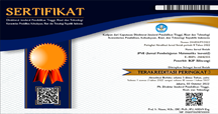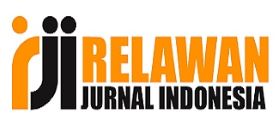Tren penelitian kemampuan pemecahan masalah pada pendidikan matematika: Analisis bibliometrik
DOI:
https://doi.org/10.22460/jpmi.v7i2.22329Keywords:
Problem Solving Skill, Mathematics Education, BibliometricsAbstract
This research aims to look at research trends on the topic of problem solving abilities in mathematics education. This research used 204 documents searched in the Scopus database, with the analysis technique used, namely bibliometric analysis using RStudio and Vosviewer. From the results that have been analyzed, it can be concluded that this research started from 1976 to 2023, with an increase of 6.69% every year. The most productive affiliates are Katholieke Universiteit Leuven, Monash University, The Chinese University of Hong Kong, and Semarang State University. Journal of Mathematical Behavior and ZDM - International Journal on Mathematics Education were ranked highest h-index. Hegarty & Kozhevnikov (1999) discussing types of visual-spatial representation and their relationship to solving mathematical problems, with the highest total citations. STEM, Programming, Mathematics Curriculum, and Computational Thinking being the recommended keywords to use if you want to conduct research on the topic of problem solving abilities in mathematics education.
References
Abdullah, N. M. S. A. N., & Lubis, A. (2022). Exploring teachers’ Experience with student character development: A comparative analysis. Islamiyyat, 44(1), 65–80.
Alam, A., & Mohanty, A. (2023). Cultural beliefs and equity in educational institutions: exploring the social and philosophical notions of ability groupings in teaching and learning of mathematics. International Journal of Adolescence and Youth, 28(1), 2270662.
Aldosemani, T. I. (2023). e-School initiatives that instigated digital transformation in education: A case study according to SABER-ICT framework. In Recent Advances in Data and Algorithms for e-Government (pp. 23–54). Springer.
Almutairi, N. T. (2023). Does investment in human capital via education stimulate economic growth in an oil-rich country? A case study of saudi arabia. Journal of the Knowledge Economy, 1–23.
Anggraeni, D. M., Prahani, B., Suprapto, N., Shofiyah, N., & Jatmiko, B. (2023). Systematic review of problem based learning research in fostering critical thinking skills. Thinking Skills and Creativity, 101334.
Asempapa, R. S. (2023). Mathematical modeling: Essential for elementary and middle school students. Journal of Mathematics Education, 8(1), 16–29.
Banerjee, M., & Krishnagar, N. (2023). Implementation of NEP 2020 curriculum: an overview. NEP 2020: Implementation Phase.
Blum, W., & Niss, M. (1991). Applied mathematical problem solving, modelling, applications, and links to other subjects—State, trends and issues in mathematics instruction. Educational Studies in Mathematics, 22(1), 37–68.
Cai, J., & Nie, B. (2007). Problem solving in Chinese mathematics education: Research and practice. ZDM, 39, 459–473.
Caraan, D. R., Dinglasan, J. K., & Ching, D. (2023). Effectiveness of realistic mathematics education approach on problem-solving skills of students. International Journal of Educational Management and Development Studies, 4(2), 64–87.
Casati, P., Moner-Girona, M., Khaleel, S. I., Szabo, S., & Nhamo, G. (2023). Clean energy access as an enabler for social development: A multidimensional analysis for Sub-Saharan Africa. Energy for Sustainable Development, 72, 114–126.
Casmana, A. R., Dewantara, J. A., Timoera, D. A., Kusmawati, A. P., & Syafrudin, I. (2023). Global citizenship: preparing the younger generation to possess pro-environment behavior, mutual assistance and tolerance awareness through school engagement. Globalisation, Societies and Education, 21(1), 15–32.
Chan, S.-W., Looi, C.-K., Ho, W. K., & Kim, M. S. (2023). Tools and approaches for integrating computational thinking and mathematics: A scoping review of current empirical studies. Journal of Educational Computing Research, 60(8), 2036–2080.
Chevalier, M., Giang, C., Piatti, A., & Mondada, F. (2020). Fostering computational thinking through educational robotics: A model for creative computational problem solving. International Journal of STEM Education, 7(1), 1–18.
Cui, Z., & Ng, O.-L. (2021). The interplay between mathematical and computational thinking in primary school students’ mathematical problem-solving within a programming environment. Journal of Educational Computing Research, 59(5), 988–1012.
Daryanes, F., Darmadi, D., Fikri, K., Sayuti, I., Rusandi, M. A., & Situmorang, D. D. B. (2023). The development of articulate storyline interactive learning media based on case methods to train student’s problem-solving ability. Heliyon, 9(4).
Dekker, T. J. (2020). Teaching critical thinking through engagement with multiplicity. Thinking Skills and Creativity, 37, 100701.
Dong, K., Wei, S., Liu, Y., & Zhao, J. (2023). How does energy poverty eradication promote common prosperity in China? The role of labor productivity. Energy Policy, 181, 113698.
Doorman, M., Drijvers, P., Dekker, T., van den Heuvel-Panhuizen, M., de Lange, J., & Wijers, M. (2007). Problem solving as a challenge for mathematics education in The Netherlands. ZDM, 39, 405–418.
Dulun, Ö., & Lane, J. F. (2023). Supporting critical thinking skills needed for the International Baccalaureate Diploma Programme: A content analysis of a national and two international education programs in Turkey. Thinking Skills and Creativity, 47, 101211.
El-Soussi, A. (2022). The shift from face-to-face to online teaching due to COVID-19: Its impact on higher education faculty’s professional identity. International Journal of Educational Research Open, 3, 100139.
Elder, L., & Paul, R. (2020). Critical thinking: Tools for taking charge of your learning and your life. Foundation for Critical Thinking.
Endot, Z., & Jamaluddin, R. (2023). Antecedent factors influencing teacher’s readiness in teaching design and technology education. Journal of Technical Education and Training, 15(3), 67–78.
Farooq, R. (2024). A review of knowledge management research in the past three decades: a bibliometric analysis. VINE Journal of Information and Knowledge Management Systems, 54(2), 339–378.
Ferreira, M. (2022). A theoretical essay about inclusion and the role of teachers in building an inclusive education. European Journal of Education and Pedagogy, 3(3), 97–104.
Filgona, J., Sakiyo, J., Gwany, D. M., & Okoronka, A. U. (2020). Motivation in learning. Asian Journal of Education and Social Studies, 10(4), 16–37.
Goldin, G. A. (1998). Representational systems, learning, and problem solving in mathematics. The Journal of Mathematical Behavior, 17(2), 137–165.
Hakim, M. L., & Angga, M. (2023). ChatGPT open AI: Analysis of mathematics education students learning interest. Journal of Technology Global, 1(01), 1–10.
Hegarty, M., & Kozhevnikov, M. (1999). Types of visual–spatial representations and mathematical problem solving. Journal of Educational Psychology, 91(4), 684.
Hidayat, D. N., Fitriah, F., Mahlil, M., & Mason, J. (2023). Factors impacting English teachers’ creativity in teaching English as a foreign language in Indonesia. Studies in English Language and Education, 10(1), 155–173.
Holmes, W., Persson, J., Chounta, I.-A., Wasson, B., & Dimitrova, V. (2022). Artificial intelligence and education: A critical view through the lens of human rights, democracy and the rule of law. Council of Europe.
Karatas, I., & Baki, A. (2013). The effect of learning environments based on problem solving on students ’ achievements of problem solving. International Electronic Journal of Elementary Education, 5(3), 249–267.
Khan, P. A., Johl, S. K., Akhtar, S., Asif, M., Salameh, A. A., & Kanesan, T. (2022). Open innovation of institutional investors and higher education system in creating open approach for SDG-4 quality education: a conceptual review. Journal of Open Innovation: Technology, Market, and Complexity, 8(1), 49.
Knight, C., & Crick, T. (2022). Inclusive education in wales: Interpreting discourses of values and practice using critical policy analysis. ECNU Review of Education, 5(2), 258–283.
Kohl, K., Hopkins, C., Barth, M., Michelsen, G., Dlouhá, J., Razak, D. A., Abidin Bin Sanusi, Z., & Toman, I. (2022). A whole-institution approach towards sustainability: a crucial aspect of higher education’s individual and collective engagement with the SDGs and beyond. International Journal of Sustainability in Higher Education, 23(2), 218–236.
Konst, T., & Kairisto-Mertanen, L. (2020). Developing innovation pedagogy approach. On the Horizon, 28(1), 45–54.
Kousloglou, M., Petridou, E., Molohidis, A., & Hatzikraniotis, E. (2023). Assessing students’ awareness of 4cs skills after mobile-technology-supported inquiry-based learning. Sustainability, 15(8), 6725.
Kwek, D., Ho, J., & Wong, H. M. (2023). Singapore’s educational reforms toward holistic outcomes:(un) intended consequences of policy layering. The Brookings Institution.
Li, Z., & Liu, Y. (2023). Analysis of the current situation of the research on the influencing factors of online learning behavior and suggestions for teaching improvement. Sustainability, 15(3), 2119.
Lidinillah, D. A. M., Rahman, R., Wahyudin, W., & Aryanto, S. (2022). Integrating sundanese ethnomathematics into mathematics curriculum and teaching: A systematic review from 2013 to 2020. Infinity Journal, 11(1), 33–54.
Ling, A. N. B., & Mahmud, M. S. (2023). Challenges of teachers when teaching sentence-based mathematics problem-solving skills. Frontiers in Psychology, 13, 1074202.
Lubienski, S. T. (2000). Problem solving as a means toward mathematics for all: An exploratory look through a class lens. Journal for Research in Mathematics Education, 31(4), 454–482.
Nakakoji, Y., & Wilson, R. (2020). Interdisciplinary learning in mathematics and science: Transfer of learning for 21st century problem solving at university. Journal of Intelligence, 8(3), 32.
Nandiyanto, A. B. D., Al Husaeni, D. N., & Al Husaeni, D. F. (2023). Introducing ASEAN journal of science and engineering: A bibliometric analysis study. Journal of Advanced Research in Applied Sciences and Engineering Technology, 31(3), 173–190.
Ogutu, H., El Archi, Y., & Dénes Dávid, L. (2023). Current trends in sustainable organization management: A bibliometric analysis. Oeconomia Copernicana, 14(1), 11–45.
Pambudi, N. A., & Harjanto, B. (2020). Vocational education in Indonesia: History, development, opportunities, and challenges. Children and Youth Services Review, 115, 105092.
Petrila, L., Goudenhooft, G., Gyarmati, B. F., Popescu, F.-A., Simuț, C., & Brihan, A.-C. (2022). Effective teaching during the COVID-19 pandemic? Distance learning and sustainable communication in Romania. Sustainability, 14(12), 7269.
Piwowar-Sulej, K. (2021). Human resources development as an element of sustainable HRM–with the focus on production engineers. Journal of Cleaner Production, 278, 124008.
Polya, G. (2004). How to solve it: A new aspect of mathematical method (Vol. 85). Princeton university press.
Rachmantika, A. R., & Wardono, W. (2019). Peran kemampuan berpikir kritis siswa pada pembelajaran matematika dengan pemecahan masalah. PRISMA, Prosiding Seminar Nasional Matematika, 2, 439–443.
Ramzan, M., Javaid, Z. K., Kareem, A., & Mobeen, S. (2023). Amplifying classroom enjoyment and cultivating positive learning attitudes among ESL learners. Pakistan Journal of Humanities and Social Sciences, 11(2), 2236–2246.
Rodríguez-Martínez, J. A., González-Calero, J. A., & Sáez-López, J. M. (2020). Computational thinking and mathematics using Scratch: an experiment with sixth-grade students. Interactive Learning Environments, 28(3), 316–327.
Shakouri, M., & Nafissi, Z. (2022). The role of caring instructors in postgraduate education: perceptions and experiences of TEFL postgraduate students and instructors. Journal of Modern Research in English Language Studies, 9(2), 149–171.
Shaw, A., Liu, O. L., Gu, L., Kardonova, E., Chirikov, I., Li, G., Hu, S., Yu, N., Ma, L., & Guo, F. (2020). Thinking critically about critical thinking: validating the Russian HEIghten® critical thinking assessment. Studies in Higher Education, 45(9), 1933–1948.
Sibaweh, I., & Yoseptry, R. (2023). Transformational leadership management of school principles in improving teacher discipline and performance Through effective learning at state high school 2 cirebon city: 10.2478/bjlp-2023-0000012. Baltic Journal of Law & Politics, 16(2), 137–147.
Sima, V., Gheorghe, I. G., Subić, J., & Nancu, D. (2020). Influences of the industry 4.0 revolution on the human capital development and consumer behavior: A systematic review. Sustainability, 12(10), 4035.
Singh, M., Goyat, R., & Panwar, R. (2023). Fundamental pillars for industry 4.0 development: implementation framework and challenges in manufacturing environment. The TQM Journal.
Sison, A. J. G., & Redín, D. M. (2023). If MacIntyre ran a business school… how practical wisdom can be developed in management education. Business Ethics, the Environment & Responsibility, 32(1), 274–291.
Sitopu, J. W., Khairani, M., Roza, M., Judijanto, L., & Aslan, A. (2024). The importance of integrating mathematical literacy in the primary education curriculum: A literature review. International Journal of Teaching and Learning, 2(1), 121–134.
Sumirattana, S., Makanong, A., & Thipkong, S. (2017). Using realistic mathematics education and the DAPIC problem-solving process to enhance secondary school students’ mathematical literacy. Kasetsart Journal of Social Sciences, 38(3), 307–315.
Szabo, Z. K., Körtesi, P., Guncaga, J., Szabo, D., & Neag, R. (2020). Examples of problem-solving strategies in mathematics education supporting the sustainability of 21st-century skills. Sustainability, 12(23), 10113.
Tuhuteru, L. (2023). The role of citizenship education in efforts to instill democratic values. International Journal Of Humanities Education and Social Sciences (IJHESS), 2(4).
Ülker, P., Ülker, M., & Karamustafa, K. (2023). Bibliometric analysis of bibliometric studies in the field of tourism and hospitality. Journal of Hospitality and Tourism Insights, 6(2), 797–818.
Wahyuni, A., Effendi, L. A., Angraini, L. M., & Andrian, D. (2020). Developing instrument to increase students’ geometry ability based on Van Hiele level integrated with Riau Malay culture. Jurnal Penelitian Dan Evaluasi Pendidikan, 24(2), 208–217.
Wan, Y., Yao, R., Li, Q., & Bi, H. (2023). Views of Chinese middle school chemistry teachers on critical thinking. Chemistry Education Research and Practice, 24(1), 161–175.
Wang, S., Chen, Y., Lv, X., & Xu, J. (2023). Hot topics and frontier evolution of science education research: A bibliometric mapping from 2001 to 2020. Science & Education, 32(3), 845–869.
Wei, G., & Niemi, H. (2023). Ethical guidelines for artificial intelligence-based learning: a transnational study between china and finland. Learning: Designing the Future, 265.
Xu, E., Wang, W., & Wang, Q. (2023). The effectiveness of collaborative problem solving in promoting students’ critical thinking: A meta-analysis based on empirical literature. Humanities and Social Sciences Communications, 10(1), 1–11.
Yakovenko, N. V, Semenova, L. V, Nikolskaya, E. Y., Semenova, E. Y., Rakhimbekova, Z. S., Karanashev, A. K., Tsoy, M. Y., & Azarova, N. A. (2024). Innovative development of russian regions: assessment and dynamics in the context of sustainable development. Sustainability, 16(3), 1271.
Yang, K.-L., He, X.-B., Tambunan, S. N. B., & Zhang, Q. (2023). Values of mathematics as a pivot of the perceptions of secondary mathematics teachers in iSTEM education. Research in Science & Technological Education, 1–19.
Yeung, M. M.-Y., Yuen, J. W.-M., Chen, J. M.-T., & Lam, K. K.-L. (2023). The efficacy of team-based learning in developing the generic capability of problem-solving ability and critical thinking skills in nursing education: A systematic review. Nurse Education Today, 105704.
Yildirim, T. P., Shuman, L., Besterfield-Sacre, M., & Yildirim, T. P. (2010). Model eliciting activities: assessing engineering student problem solving and skill integration processes. International Journal of Engineering Education, 26(4), 831–845.
Yonezawa, A. (2023). Japan’s higher education policies under global challenges. Asian Economic Policy Review.
Zafrullah, Z., Bakti, A. A., Riantoro, E. S., Kastara, R., Prasetyo, Y. B. A., Rosidah, R., Fitriani, A., Fitria, R. L., Ramadhani, A. M., & Ulwiyah, S. (2023). Item responses theory in education: A biblioshiny analysis (1987-2023). Journal of Education Global, 1(1), 101–114.
Zafrullah, Z., Fitriani, A., Ramadhani, A. M., & Hidayah, S. M. N. (2023). Transformasi adobe flash dalam dunia pendidikan: Analisis bibliometrik (2006-2023). Indo-MathEdu Intellectuals Journal, 4(3), 1652–1666.
Zhang, D., & Xin, Y. P. (2012). A follow-up meta-analysis for word-problem-solving interventions for students with mathematics difficulties. The Journal of Educational Research, 105(5), 303–318
Downloads
Published
Issue
Section
License

This work is licensed under a Creative Commons Attribution-ShareAlike 4.0 International License.
The author is responsible for acquiring the permission(s) to reproduce any copyrighted figures, tables, data, or text that are being used in the submitted paper. Authors should note that text quotations of more than 250 words from a published or copyrighted work will require grant of permission from the original publisher to reprint. The written permission letter(s) must be submitted together with the manuscript.
















